In this piece, Cheng Li and Xiuye Zhao argue that by proactively engaging and empowering subnational leaders, the incoming Biden administration can promote the positive impacts of U.S.-China subnational diplomacy, benefit the American middle class and enhance the leverage of the U.S. in strategic competition with China. This piece originally appeared in China-US Focus.
While the debate over the new U.S. administration’s China policy disproportionately centers on competition and issues of contention between Washington and Beijing, it is only fair to factor in the perspective of America’s state and local policymakers, who are keenly interested in the impact of the bilateral relationship on their states, counties and cities.
Conventional wisdom holds that a bipartisan consensus supports strategic rivalry between China and the United States, but local leaders in America are struggling to salvage the economic, educational and cultural ties with China that they have spent decades cultivating for their constituents.
During the Trump presidency, especially with its comprehensive decoupling with China over the last two years, bilateral relations have deteriorated at an astonishing rate. Yet subnational exchanges across the Pacific have largely survived and, in some cases, flourished.
For example, between the start of the trade war in mid-2018 and the halting of international travel in early 2020 because of the pandemic, three governors (all Republicans) undertook trade missions to China. The fact that governors in President Trump’s own party have not rallied behind his call to decouple with China shows that there is more than domestic politics at play.
Perspectives outside the beltway
This observation differs significantly from views within the beltway, where there is bipartisan congressional agreement on a confrontational China policy. It has often been said that Democrats and Republicans on Capitol Hill disagree on everything except China. This contrast is important for the incoming Biden administration’s search for a new, more coherent and effective way to deal with the China challenge. A successful China policy by the new administration will need to balance subnational collaboration and strategic competition.
Local governments are important stakeholders and drivers of U.S. foreign policy, especially given the aim of the Biden administration to promote international cooperation and public good, while vigorously advancing the interests of the American middle class. With previous support and guidance from the federal government, America’s local leaders are already familiar with the avenues that lead to success. Over more than four decades of engagement, the two largest economies in the world have established 50 sister state-province partnerships and more than 200 sister cities. State governments in the United States have set up 27 representative offices in China — more than in any other nation.
Subnational engagement between the United States and China has burgeoned as a result of commercial and cultural exchanges that are largely independent from national-level politics. Robust and targeted subnational collaboration brings jobs and investment back home to both countries, delivering tangible economic benefits for the middle class. Unilateral actions have cost jobs at the local level.
Decoupling hurts local interests
The pervasive view among senior officials in the outgoing Trump administration about subnational cooperation, including educational and cultural exchanges, is no longer one of hope for positive change through engagement. Instead, it has been one of fear, the concern that the Communist Party of China aims to exert outright authoritarian influence in American politics and “weaponize” Chinese scholars and students to hasten the country’s rise at America’s expense.
In particular, the Trump administration has picked subnational engagement as one of the battlegrounds for decoupling. In November, the State Department announced that the United States would be pulling out of the U.S.-China Governors Forum, which was established in 2011, citing concerns over Chinese influence.
While concerns of possible foreign interference in the American political process are legitimate, painting U.S.-China subnational engagement with broad strokes risks throwing the baby out with the bathwater. The decision to decouple is made by Washington, but the pain is felt in communities across the country.
For example, in the state of Washington, where one in every three jobs is directly or indirectly related to trade — from fresh cherries to Boeing aircraft — the state saw exports drop 65 percent in 2020. Michigan saw a 16 percent drop in the number of Chinese students on the campuses of the University of Michigan and Michigan State University from 2018 to 2020 even before COVID-19 hit last spring. The list of the victims of decoupling extends to soybean farmers in South Dakota and ginseng growers in Wisconsin.
A nonpartisan initiative
Since the establishment of the U.S.-China diplomatic relationship more than four decades ago, subnational partnerships between the United States and China have not been primarily motivated by politics and are not likely to end over politics. Even in the face of economic hardship and deteriorating relations, there is broad bipartisan consensus at the state and local level for collaboration on issues ranging from promoting economic development and tackling climate change to furthering cultural exchanges and providing PPE support during the pandemic.
When trade and mutual investment with China appear at the top of the balance sheet for governors across the United States, it becomes vital for them to find ways to collaborate. Politics aside, when Michigan was struggling from the economic recession in 2011, Governor Rick Snyder chose China as the first destination of his trade mission — an expedition to determine why America was losing jobs to China and how that trend could be reversed. The subsequent seven trade missions during Snyder’s term brought $1.21 billion in new Chinese investment to Michigan, resulting in 6,304 new jobs created for state residents, which put the state at the top of the Midwest for number of jobs created through Chinese investment. Despite strong headwinds, America’s state and local leaders have managed to turn China from a destination for industrial outsourcing to a source of investment and job growth.
Even at the height of the pandemic and amid mounting pressure to decouple, governors have worked to fend off political pressure and find solutions for their states. Tennessee Governor Bill Lee appeared in a video at the North America Investment Summit held in Beijing in September 2020 in which he welcomed Chinese businesses to his state. When asked by U.S. Secretary of State Mike Pompeo to be cautious about Chinese companies with connections to the Chinese government, the response of Lee’s team was: “The great news is we recruit companies, not countries.” A rigorous review process surely needs to be in place to vet inbound foreign investment, but subnational leaders cannot afford to cut all economic ties with the world’s second-largest economy out of fear of ill-defined “foreign influence.”
Perhaps no other subnational initiative would provide better inspiration for the incoming administration than a partnership on climate change. A 2015 U.S.-China Climate Leaders Summit hosted by mayor Eric Garcetti of Los Angeles paved the way for a bilateral national agreement that enabled the Paris climate accord. Even as the Trump administration pulled the United States out, a bipartisan group of 25 governors formed the U.S. Climate Alliance, which aims to tackle climate change. Local American leaders have led the way and provided a roadmap with which the Biden team can address climate change as one of its top priorities.
Subnational diplomacy can benefit the middle class
Having deemed a Cold War-style decoupling to be unrealistic and counterproductive, the incoming administration has the opportunity to formulate a nuanced China policy that enjoys bipartisan support on the state and local level and that will yield more benefits for middle-class Americans against the backdrop of strategic competition.
In a survey of middle-class Americans in Colorado, Nebraska and Ohio, respondents did not perceive foreign policy the same way as strategists in Washington. From their perspective, an effective China policy needs to strike a balance between countering China’s unfair trade practices and preventing an all-out geopolitical rivalry, since endless confrontation between the two largest economies deters investment and costs jobs. Maintaining a distinction between geopolitics and subnational collaboration enables the American middle class to reap the economic benefits.
Clearer communication as well as better coordination between the federal government and local leaders is the key to successful subnational diplomacy. Effective intergovernmental communication can help the incoming administration formulate a clear and functional scope of national security for local leaders. An all-encompassing definition of national security only disrupts cross-border transactions and erodes the remaining trust between the citizens of both nations.
Subnational diplomacy starts at home with comprehensive and sustained government investment in education, infrastructure and innovation. Broad decoupling on the subnational level will not help the U.S. compete with China because it diminishes economic growth in the United States and cuts off channels of soft power influence and cooperation between Americans and their Chinese counterparts.
An effective and disciplined style of American subnational diplomacy can be achieved if the federal government helps level the playing field for local leaders. When U.S. governors and mayors travel overseas to promote the economic and commercial interests of their states or cities, their work deserves backing from Washington rather than excessive scrutiny and over-politicization.
By proactively engaging and empowering subnational leaders, the incoming administration can promote the positive impacts of U.S.-China subnational diplomacy, benefit the American middle class and enhance the nation’s leverage in strategic competition with China.
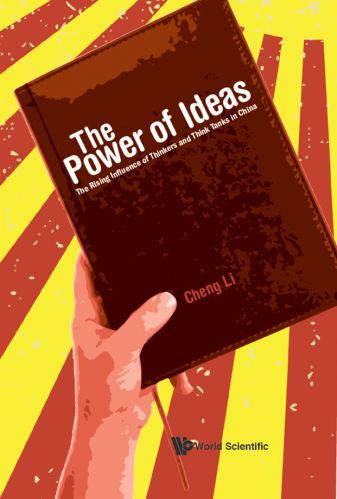
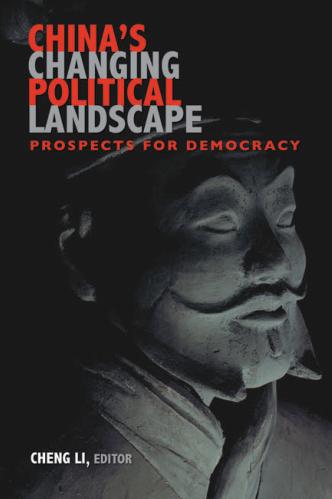
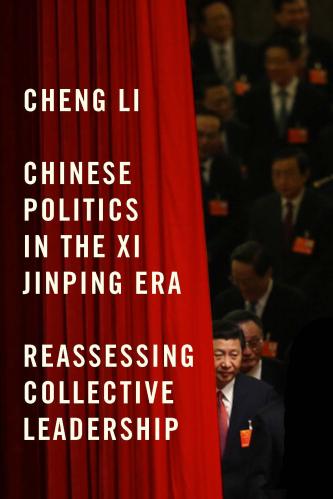
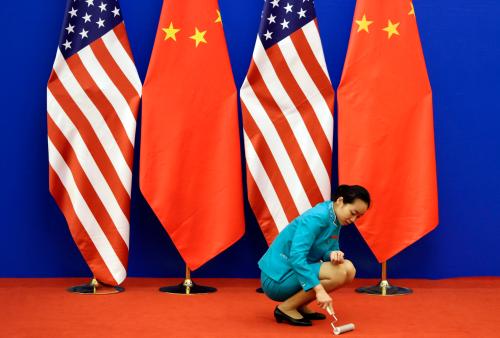
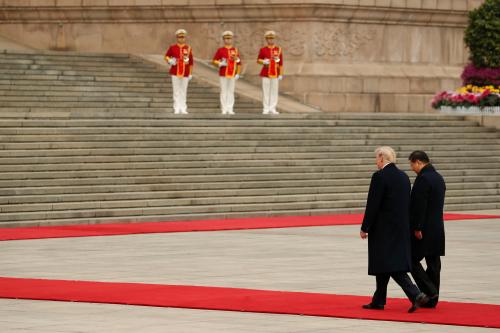
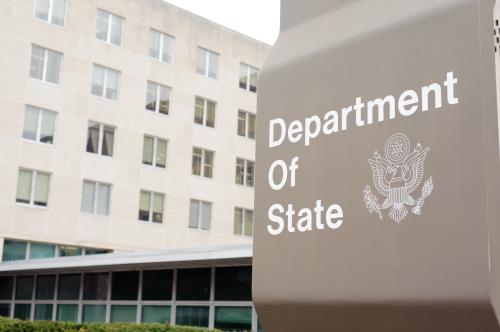





Commentary
America’s governors and mayors have a stake in US-China relations
January 14, 2021